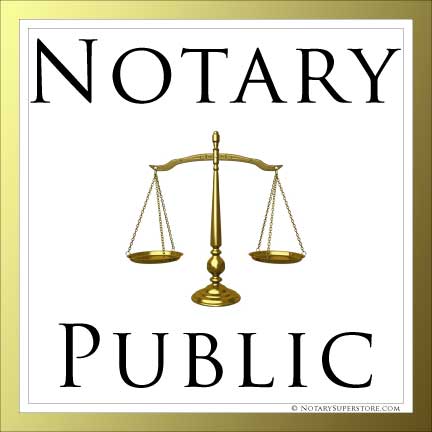Understanding Apostille: Simplifying International Record Legalisation
Understanding Apostille: Simplifying International Record Legalisation
Blog Article
Demystifying Notarial Job: Streamlining the Function and Importance of Notaries
Their function, commonly shrouded in secret for several, carries significant weight in ensuring the credibility and honesty of important papers. By unwinding the complexities shedding and surrounding notarial techniques light on the value of their acts, a more clear understanding emerges of the crucial role notaries play in supporting the material of legal and lawful contracts.
The Background of Notarial Work
The history of notarial job dates back to ancient worlds, where scribes played a crucial duty in taping vital info and authenticating files. This led to the advancement of notaries, individuals assigned by the state to act as neutral witnesses in lawful matters.
During the Middle Ages, notaries obtained prominence in Europe, with their features expanding to consist of composing lawful papers, licensing trademarks, and maintaining records. The surge of international profession further stressed the significance of notarial work in verifying agreements and agreements throughout boundaries.
In the modern-day age, notaries proceed to play an essential function in lawful and organization purchases by confirming identifications, verifying the authenticity of files, and stopping fraud. Their function in licensing the legitimacy of arrangements includes a layer of security and depend the ever-evolving landscape of commerce and law.

Tasks and Duties of Notaries
The historical development of notarial job from old worlds to the modern-day age has actually formed the unique duties and obligations that notaries maintain in lawful and organization purchases today. Notaries play a crucial function in validating the credibility of papers and the identity of signatures. One of their key duties is to witness the finalizing of important files, such as wills, actions, and agreements, to make certain that all events are becoming part of arrangements intentionally and willingly. Notaries also verify that signatures are of sound mind and not under pressure or coercion.
Furthermore, notaries are charged with providing vows and affirmations, which are essential in legal procedures and the implementation of affidavits. They license duplicates of initial documents, supplying guarantee to organizations that the duplicates hold true reproductions of the originals. Notaries must preserve precise records of all deals they oversee to ensure transparency and responsibility. Overall, the duties and duties of notaries are important in guarding the integrity and legitimacy of numerous files and transactions.
Notarial Certificates and Signatures
Exemplifying thorough focus to detail, notarial certifications and trademarks work as important components in verifying the authenticity of lawful records. Notarial certifications commonly consist of critical information such as the date of registration, the names of the signatories, a summary of the paper, and the notary's main seal. These more certificates provide a clear document of the notarial act, making certain that the Notary document can be conveniently recognized and mapped back to the notary who managed the procedure.
Trademarks play an essential function in notarial job, as they represent the arrangement and authorization of the events entailed. Notaries thoroughly witness the signing of files to confirm the identity of the signatures and confirm that they are signing of their own complimentary will. By affixing their main seal and trademark to the record, notaries certify that the necessary treatments have actually been adhered to which the file is valid and enforceable.
Essentially, notarial certifications and signatures are the trademark of authenticity in legal transactions, giving assurance to all parties involved that the records are reputable and binding.
Significance of Notarial Acts

Notarization Process Explained
The notarization process generally begins with the private offering the paper to a notary public. Once the identification is validated, the notary ensures that the private authorizing the file does so willingly and without any type of coercion.

Verdict

Notarial certificates typically consist of important information such as the date of registration, the names of the signatories, a description of the record, and the notary's main seal. These certifications supply a clear record of the notarial act, making certain that the file can be quickly recognized and traced back to the notary that oversaw the process.
By affixing their main seal and trademark to the document, notaries certify that the necessary treatments have been followed and that the file is valid and enforceable.
By confirming the identity of the signatures, verifying their willingness to get in into the arrangement, and licensing the day and location of the signing, notaries play a crucial role in supporting the credibility of legal records.After the document is authorized, the notary will certainly attach their main seal or stamp onto the paper.
Report this page